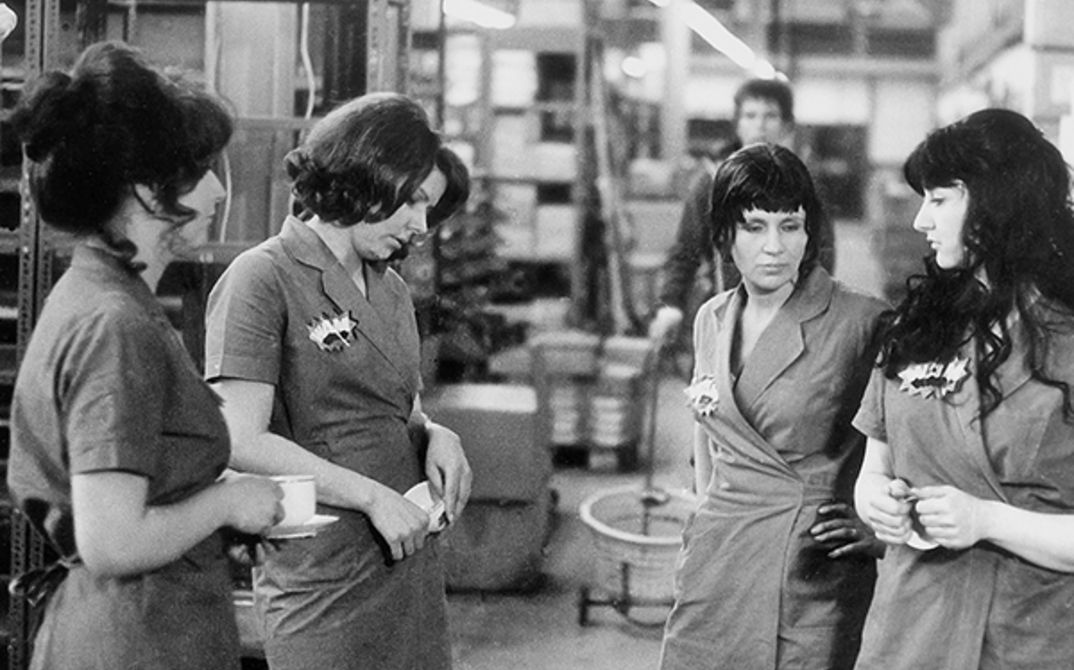Commentary on a target group film by Helke Sander
The film aims to support the work of women’s workplace groups. It provides a basis for discussing three problems:
a) How is woman subjected to capitalist exploitation in the workplace? b) How is woman oppressed by man in a way that cannot be attributed to the primary contradiction? c) How are women forced to engage in reactionary behaviour toward children?
on a)
The film’s factory scenes show the development of women who do name what oppresses them, but in a manner that is cheerful and without consequences. Through Irene’s reflections, the women’s discussions about the class enemy lose their non-binding character and become more than mere griping. Irene gains her clearer consciousness because, on the one hand, as a single mother of two she suffers more exploitation and has less opportunity to conceal it from herself, and on the other hand, being single gives her the advantage of developing independence and self-confidence. Irene gradually learns to ask who benefits and who is damaged by every situation.
This development leads to action: the women smash the camera that keeps them under surveillance and the loudspeaker that constantly inundates them with inane music and in-house messages. And they take the initiative to at least let in some fresh air, so that they can perform their work in conditions fit for human beings. This measure shows the women’s general anger and how this anger is articulated in solidarity. (…)
on b)
If one ignores the big cities, where by now there is a certain understanding of the general problem, so that oppression finds a more sublimated expression because it is no longer socially acceptable, it turns out that women feel great relief if other women speak up for them about their husbands oppressing them. As long as there are men who beat their wives, who forbid their wives to attend political gatherings, who forbid their wives to associate with other people after the wedding – that’s how long these men must be fought. Because in this case it is them, and not the capitalists, who are the instigators of the prohibitions, and they can only be liberated from their current role through violence and not through understanding. A woman does not automatically see the difference between a man who goes bowling in the evening and one who attends political training. Women must get organised in order to combat private oppression together. Because when a man prohibits a woman from going out, she is prevented from gaining insight into the class struggle. (…)
on c)
What’s special about Irene is that she does not behave submissively, even though she has children. A large part of her political consciousness develops from recognising the contradiction between how she wants to act toward her children and how she must act toward them. She knows that she acts wrongly toward them when she reproaches them, forbids them things, or demands discipline from them. She gradually recognises that she herself is being disciplined when she disciplines her children, but that this behaviour still objectively benefits the children, because it is the only way she can prevent them from flunking in school, losing their apartment etc. If she lets the children make noise, she only makes herself and her situation even more vulnerable. Irene wants to act in accordance with her consciousness, but in the interest of the children she is forced to act in a reactionary manner.
Irene has recognised this contradiction. In the film, she takes the children’s side by representing their interests. She thus heeds correct considerations. But her actions are spontaneous and could cost her and her children their apartment. The many Irenes should put their heads together!
(Infoblatt No. 40, 1. Internationales Forum des jungen Films, Berlin 1971)
